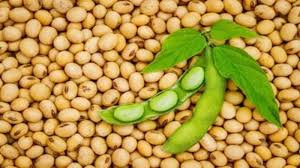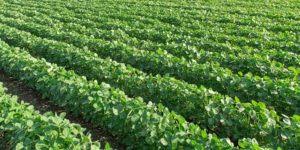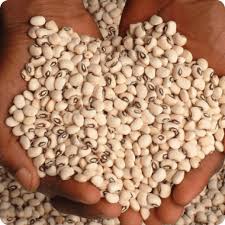![]()
If you’ve landed on this article page, you’re probably searching for a
good business idea—an idea that’s light on the pocket but heavy on
returns, promising both a fulfilling journey and potential profit.
|
How
to start a lucrative Beans Farming in Nigeria
Beans farming is quite popular in Nigeria. Beans also called
cowpea is one of the most consumed food items in Nigeria. Almost
everybody eats beans in one form or the other in Nigeria.
Beans farming is simply the cultivation of beans from the stage
of seeding to the final stage of harvesting. To grow beans or
cowpea in Nigeria, you need to get a farmland, prepare the
farmland, plant the cowpea seeds, fertilise the cowpea plants,
use pesticides for pests and disease control and harvest the
matured beans pods.
Varieties of Cowpea (Beans) in Nigeria
The following are the varieties of beans in Nigeria: SAMPEA 19,
SAMPEA 18, FUAMPEA 2, FUAMPEA 1, SAMPEA 17, SAMPEA 16, SAMPEA
15, SAMPEA 14, SAMPEA 13, SAMPEA 12, SAMPEA 11 -1, Nigerian
Brown 7, Ife Bimpe, Popse-1
To plant cowpea, it is advisable to design rows of width of 45cm
– 90 cm. The erect or bushy type of varieties can be planted in
closer rows.
For the erect variety of beans, about 120,000 plants (30 – 50kg
of seeds) can be on one hectare. For the crawling type of beans,
about 60,000 plants (12 – 15kg of seeds) be put in one hectare
of farmland.
40 days bean variety is a type of beans that matures in 40 days.
It is very popular among Nigerian cowpea farmers because of its
short maturity time. Imagine, planting a crop and harvesting
within 40 days. The 40 days beans variety has an erect
characteristic. It does now crawl on the soil. Erect cowpea
variety are less susceptible to pests and diseases than the
crawling variety. The varieties of beans that mature in 40 days
include FUMPEA I and II, SAMPEA 11, 14, 15, 16, 17, 18, 19 and
40 days (Kwankwaso).
‘Kwankwaso’ beans variety is very popular in the northern part
of Nigeria because of its 40 day maturity time.
Best month to plant beans in Nigeria
Cowpea can be planted anytime of the year, however, some months
are more appropriate for the cultivation of beans than others.
There are mainly two types of beans grown in Nigeria, they are:
White beans
This is a type of cowpea that is white in colour. It is the
commonest type of beans in Nigeria. You are likely to see this
type of beans in all markets in Nigeria.
Brown beans
Some people also call this type of beans, red beans. It is not
as common as white beans. It is pricier than white beans.
How to start beans farming in Nigeria
To be successful in beans farming, the following steps have to
be taken:
1. Get a farmland
Having a suitable farmland is a must for beans farming. You
should get a farmland with a fertile soil. Nigeria has a vast
land area; you can get farmland in any state of the country.
Getting farmlands in the rural areas may be cheaper.
Beans can be cultivated in any part of Nigeria. Yes, cowpea is
mostly grown in the northern part of Nigeria. It can also be
grown in the southern part of the country. There are beans
farmers in Oyo state and Ondo state.
2. Soil Preparation
Soil preparation is beneficial for beans farming. Cowpea prefers
soils that are well loose with good water draining capacity.
Clay soil is not good for the growing of cowpea. The soil should
have humus.
The first step in land preparation is the removal of trees,
stumps and weeds. Bulldozers can
be used to remove the trees and stumps. However, care
must be exercised so that the top soil will not be removed.
Plowing, harrowing and ridging also have to be done. These can
be done with the use of tractors. Some farmers use no till
farming concept for the growing of cowpea.
3. Engagement of staff members
Your staff members can make or mar your goal of having a
successful cowpea farm. You should engage labourers who are
skilled in the growing of beans. If your farm is big, it is
advised that you engage agronomists with hands on experience.
Do not employ people with big paper certificates in agronomy
without any hands on experience.
4. Procure Fertilisers
It is advised that you do a soil test before applying
fertilisers to your farm. Cowpea is a leguminous crop; you may
not need to use a nitrogen fertilizer.
Phosphate fertilisers like Single Super Phosphate (SSP), Triple
Super Phosphate (TSP) and Diammonium Phosphate (DAP) can be
used.
Manure can also be added to the soil. During the flowering stage
of the crop, potassium fertilizer like Muriate of Potash (MOP)
can be used.
5. Pesticides
You need pesticides like insecticides, fungicides and
nematicides etc. for your cowpea crop. Beans attract a lot of
pests, without the right pesticides, you may not harvest a
single grain of beans from your farm.
The pesticides can be used for preventative and curative
actions.
6. Farm Management
You need highly skilled people to manage your farm especially if
the farm is large. For small farms, the owner can manage the
farms themselves.
Poor management of beans farms can lead to poor yield.
7. Harvest
Beans is usually harvested after 40 days if you plant the 40 day
beans variety. Some varieties have a lifespan of above 60 days.
Beans are harvested in pods. The pods have to be broken and the
beans removed. The beans are then bagged and stored in a clean
dry area.
The harvest of beans can be tedious especially if done by hand.
Machines can be used for harvesting if the farm is large.
8. Storage of harvested beans
Harvested beans are bagged and stored in dry area, mostly in a
room. They can also be stored in silos.
Beans attract weevils. Pesticides can be used to prevent weevils
and other pests. Neem powder or dust can also be used.
9. Selling of the harvested beans
Almost everyone eats beans in one form or the other in Nigeria.
Beans can be sold in the open markets in Nigeria.
During the harvest period in Nigeria, the prices of beans are
low. During the planting season, prices of beans skyrocket.
The yield of beans per hectare in Nigeria varies from 0.2 tonnes
to 3 tonnes.
The profit analyses above were done using three scenarios (best
case, mid case and worst case).
Drip Irrigation: The cost of drip irrigation kit per hectare of
beans farm is N625,000. If you rely on rains, you do not need
drip irrigation.
Fertilisers: N60,000 is expected to be spent on fertilisers for
one hectare of beans farm. The use of Single Super Phosphate
fertilizers or any other phosphate fertilizer is advised.
Potassium fertilizer like MOP can also be used.
Pesticides: N60,000 is expected to be spent on pesticides
(insecticides and fungicides), however, you should note that the
total cost to be spent on pesticides will depend on the
intensity of pests and diseases on your farm.
Sales Revenue: It is assumed that 20 bags of 100kg of beans will
be harvested from one hectare of beans farmland. The yield can
be more than 20 bags or less than 20 bags, it depends on your
agronomic practices and other factors.
The price of a bag of beans varies from N160,000 – N180,000
every year in Nigeria. A sales revenue of N3.2 million is
assumed in the best case.
Manure: N70,000 is expected to be spent on manure. Some farmers
may get manure at little or no cost.
Seeds: 30kg of seeds is expected to be used for one hectare.
Each kg of seeds cost about N4,200.
Cost of Labour: The cost of labour for 6 months is assumed to be
N220,000. Please note that the cost of labour varies according
to location and cost of living in the location where your farm
is situated.
Knapsack Sprayer: The cost of one knapsack sprayer is expected
to be N25,000.
Farm Tools: N35,000 is expected to be spent on this.
To start beans farming, entrepreneurs need to identify the best
varieties, prepare the land, plant the seeds, and manage pests
and diseases. There are also several marketing strategies that
can be used to sell beans farming products, including direct
sales, cooperative marketing, and online marketing.
Get our Practical Training guide on Beans Farming in Nigeria.
The detailed and comprehensive training will be provided.
Remember, this comprehensive guide serves as a general roadmap
to help you understand the various aspects of starting a Beans
farm. It is crucial to conduct thorough research, seek expert
advice, and adapt the information provided to your specific
circumstances before embarking on your entrepreneurial journey
|







